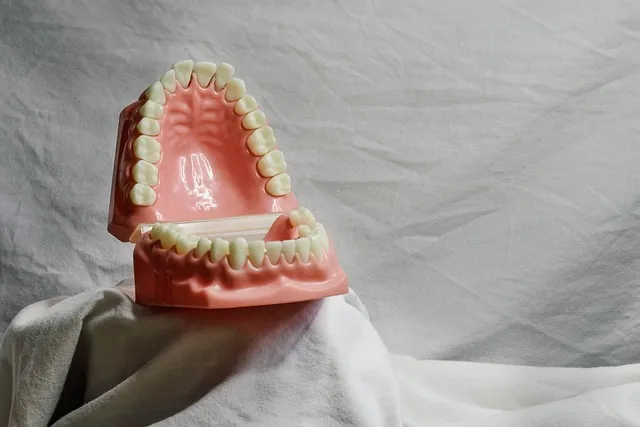
Introduction:
Temporomandibular Joint (TMJ) disorders present a unique set of challenges for both patients and dental professionals. The complex nature of TMJ disorders can make diagnosis and treatment intricate. In this blog post, we will explore common difficulties faced in diagnosing and treating TMJ disorders and provide strategies for overcoming these challenges to enhance patient outcomes.
1. Diverse Symptomatology:
Challenge: TMJ disorders often manifest with a diverse range of symptoms, including jaw pain, clicking sounds, headaches, and limited mouth opening. The variability in symptoms can complicate diagnosis.
Overcoming Strategy:
Comprehensive Patient History: Take a detailed patient history to understand the onset, duration, and nature of symptoms. Inquire about factors such as stress, trauma, or parafunctional habits that may contribute to TMJ disorders.
Multidisciplinary Approach: Collaborate with other healthcare professionals, such as physical therapists or pain specialists, to obtain a comprehensive view of the patient’s condition.
2. Diagnostic Imaging Limitations:
Challenge: Traditional diagnostic imaging, such as panoramic radiographs, may not provide a complete assessment of TMJ disorders due to the complex anatomy of the joint.
Overcoming Strategy:
Advanced Imaging Techniques: Utilize advanced imaging techniques, such as Cone Beam Computed Tomography (CBCT) or magnetic resonance imaging (MRI), to obtain detailed views of the TMJ structures.
Dynamic Imaging: Consider incorporating dynamic imaging, such as magnetic resonance imaging with jaw movement, to assess the joint in various functional positions.
3. Psychosocial Factors Impacting Symptoms:
Challenge: Psychosocial factors, including stress and anxiety, can contribute to TMJ symptoms, making it challenging to distinguish between physical and psychological causes.
Overcoming Strategy:
Holistic Assessment: Adopt a holistic approach to assessment by considering both physical and psychosocial factors. Evaluate stress levels, sleep patterns, and lifestyle factors that may influence TMJ symptoms.
Patient Education: Educate patients on the connection between stress and TMJ symptoms and provide stress management techniques as part of the treatment plan.
4. Parafunctional Habits:
Challenge: Parafunctional habits such as bruxism (teeth grinding) can contribute to TMJ disorders, and identifying these habits may be challenging.
Overcoming Strategy:
Clinical Observation: Observe clinical signs of parafunctional habits, such as wear patterns on teeth, muscle tenderness, or hypertrophy.
Patient Interviews: Conduct thorough interviews to identify habits like teeth clenching or grinding, particularly during sleep. Consider using patient questionnaires to gather relevant information.
5. Interdisciplinary Collaboration:
Challenge: TMJ disorders often require a multidisciplinary approach, and coordinating care between different healthcare professionals can be challenging.
Overcoming Strategy:
Case Conferencing: Schedule case conferences with other healthcare providers involved in the patient’s care to discuss treatment plans and coordinate efforts.
Referral Networks: Establish a network of trusted specialists, including physical therapists, pain management specialists, and psychologists, to facilitate seamless referrals and collaborative care.
6. Individualized Treatment Plans:
Challenge: Developing individualized treatment plans for TMJ disorders can be challenging due to the diverse nature of symptoms and contributing factors.
Overcoming Strategy:
Comprehensive Assessment: Conduct a thorough assessment to identify the specific factors contributing to each patient’s TMJ disorder.
Tailored Therapies: Develop customized treatment plans that may include a combination of conservative measures, such as physical therapy, splint therapy, and stress management techniques, based on the individual needs of the patient.
Conclusion:
Overcoming difficulties in diagnosing and treating TMJ disorders requires a multifaceted and collaborative approach. By acknowledging the diverse symptomatology, utilizing advanced diagnostic imaging, addressing psychosocial factors, identifying parafunctional habits, fostering interdisciplinary collaboration, and tailoring treatment plans to individual needs, dental professionals can enhance their ability to effectively manage TMJ disorders.
Remember, patient education and open communication play crucial roles in the successful treatment of TMJ disorders. Empowering patients with knowledge about their condition and involving them in the decision-making process contribute to better treatment adherence and improved outcomes.
Muskan.ai – An ecosystem powered by Artificial Intelligence for dentistry.
Introducing Muskan.ai, a cutting-edge ecosystem driven by Artificial Intelligence tailored for the field of dentistry. Our innovative AI engine seamlessly integrates with a suite of AI products, empowering dentists to elevate their practice. Through this integration, dentists can optimize their workflow, save valuable time, and concurrently boost their revenue.
With our advanced AI-based radiography analysis tool, dentists can enhance patient treatment acceptance rates and obtain a valuable second opinion promptly. Our AI-powered oral hygiene checkups provide dentists with insights into a patient’s dental status, allowing for efficient time management and enabling the feasibility of tele-dentistry. Patients can conveniently connect with their dentists through a user-friendly mobile app.
Meet DAISY, our AI-powered dentalGPT, designed to interact naturally with patients, addressing their minor queries regarding dental health. In addition to these features, we are at the forefront of championing AI-based Oral Cancer Screenings, offering timely interventions and facilitating recovery without resorting to invasive treatments. Muskan.ai is not just a technological advancement; it’s a transformative force enhancing both dentistry practice and patient care.



